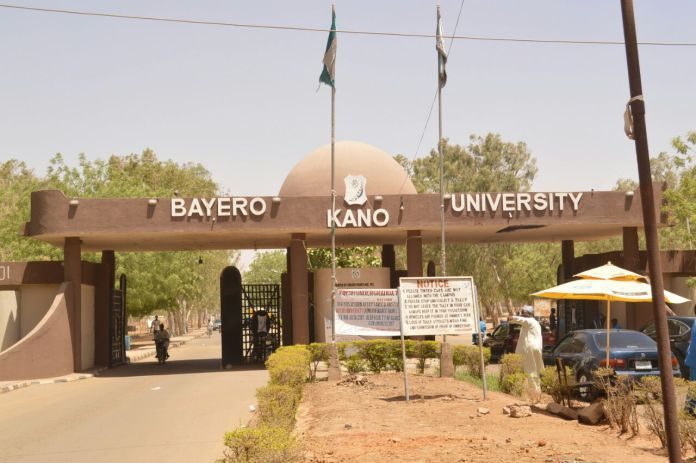BUK sensitises residents on Lassa Fever
Bayero University Kano has conducted sensitization lecture to educate members of the university community on Lassa Fever, with a view to enlighten them on possible measures they need to take to keep safe from the dreaded viral disease. Over 258 confirmed cases of the disease have been recorded across the country since its outbreak this […]

Bayero University Kano
Bayero University Kano has conducted sensitization lecture to educate members of the university community on Lassa Fever, with a view to enlighten them on possible measures they need to take to keep safe from the dreaded viral disease.
Over 258 confirmed cases of the disease have been recorded across the country since its outbreak this year, the National Centre for Disease Control (NCDC) has said.
The Director Centre for Infectious Diseases Research, Professor Isah Abubakar charged the members of the university community to imbibe the culture of environmental and personal hygiene.
He said Lassa fever is a disease transmitted by a particular specie of rats, and can easily be transmitted from an infected person especially those that are having signs and symptoms.
The Director noted that people who are infected usually have fever that doesn’t respond to treatment and some of them will have abdominal pain, chest pain, weakness, nausea, vomiting and diarrhoea. He added that others will have cough and sore throat which can lead to bleeding.
Prof Abubakar urged that people should not panic unnecessarily, but take protective measures, adding that it is controllable as long as all the necessary standard precautions are strictly applied.
He explained that statistics presented by the National Centre for Disease Control in Nigeria shows about 80% of those who have the virus do not know they have it because they do not exhibit symptoms, it is about 20% that have clinical symptoms.
“We must ensure that our environmental sanitation level is high to keep rats away. We can use cats to eat all the rats and then we are free of possible transmission of Lassa fever,” he added.
In his presentation, Professor I. Nashabaru said many cases of Lassa fever are unaccounted due to poor laboratory support and inadequate surveillance systems.
